Saturday, June 28, 2014
The Wolverine
Not that it’s a particularly bad film – it pisses liquid adamantium all over ‘X-Men Origins: Wolverine’ – but, damn, ‘The Wolverine’ could have been so much more. In the early stages it looked like it was set to be the franchise’s high point, with Darren Aronofsky was announced as director of ‘The Wolverine’ working from a script by Christopher McQuarrie. A marriage made in fan-boy heaven, right?
Not to be. Aronofsky left the production citing unwillingness to be out of the country, due to family commitments, for the length of time the Japan-set shoot would take. The internet rumour mill speculated on a falling out with the producers after Aronofsky demanded the kind of full creative control Christopher Nolan wielded on the Batman trilogy. Whatever the reason, what we’re left with is ‘The Wolverine’ written by Mark Bomback and Scott Frank (from Chris Claremont and Frank Miller’s savagely minimalist graphic novel) and directed by James Mangold.
Set an unspecified period of time after the events of ‘The Last Stand’ (using that movie as both a narrative and emotional touchstone sounds the first warning bell), ‘The Wolverine’ reintroduces us to Logan (Hugh Jackman) as a vagrant bumming around the Yukon territory and haunted by memories of Jean Grey (Famke Janssen). He’s approached by Yukio (Rila Fukushima) who summons him to Japan on behalf of dying industrialist Yashida (Hal Yamanouchi). Logan first met Yashida at Nagasaki – the crassly staged mushroom-cloud prologue is easily worst part of the film – and Yashida feels he has a debt to repay.
The ulterior motive is soon revealed: he wants to extract Logan’s recuperative powers and basically become immortal. Logan understandably declines but before he can head back to the States, a power struggle for Yashida’s empire erupts and his granddaughter and heir apparent Mariko (Tao Okamoto) is kidnapped. Logan and Yukio form an instinctive alliance while more double-crossing goes on around them than an average week in British politics. Participants include: Mariko’s fiancé, the corrupt minister for justice Noburo (Brian Tee); her former inamorata, the bodyguard Harada (Will Yun Lee); and her father Shingen (Hiroyuki Sanada). Weaving between them and spinning her own manipulative web is the sexy-but-deadly Viper (Svetlana Khodchenkova, vamping it up in fine style).
To his credit, Mangold takes his time setting up these characters and their interrelationships. The first hour is notably low-key and light on action. Indeed, big action set-pieces are pretty sparse given that ‘The Wolverine’ was a major studio release with a $125million budget. A kinetic fight on top of a bullet train is mercifully brief, the whole thing over and done with in slambang fashion before it becomes too risible, and even the obligatory extended smackdown that concludes things doesn’t drag on as long as seems to be the norm in these kind of movies. It does, however, come across as something of a retread of the powersuit duel at the end of ‘Iron Man’.
Ultimately, Mangold allows Jackman to do more with Logan than in previous outings and he responds with his best performance yet in the role. It helps that, apart from Yukio’s precognition and Viper’s poison glands, the film has little to do with mutants. It’s basically a combination of Yakuza crime epic, family drama and morality tale, with Logan as a fish-out-of-water in a country whose rituals and heritage he doesn’t understand. A subplot wherein his recuperative powers are weakened allows for both an exploration of his vulnerability and a crowd-pleasing return to full-on Wolverine anti-heroics once he realises what’s been done and reverses the process.
But for all the good work, the film gets bogged down with excess baggage. Logan’s weight of guilt over Jean Grey’s demise in ‘Last Stand’ is handled clumsily. There are too many subsidiary characters are written in purely to overcomplicate an essential simplistic narrative. There’s an undertone of racism that is paradoxically more noticeable for the filmmakers’ attempts to disguise it. For all the talk about honour and duty, it’s just so much tommyrot when you stop and think about how the indigenous characters are portrayed.
Mostly, though, what prevents ‘The Wolverine’ from hitting the heights it could have reached is its lack of either a directorial signature or a specific visual aesthetic. A good 80% of the movie takes place in a country where the bustling vibrancy of its modern aesthetic exists, and indeed synergizes, with the stoic classicism of ancient tradition. It should be artistically impossible to shoot a movie in Japan and emerge with footage that’s anything less than eyeball-grabbing. Somehow Mangold manages it, and the possibilities of Aronofsky’s take on the material seem an even greater loss.
Subscribe to:
Post Comments (Atom)
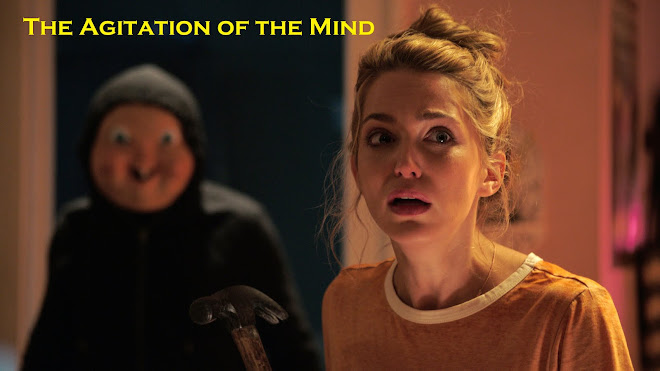





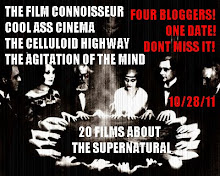
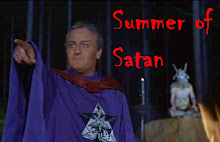
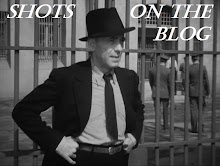










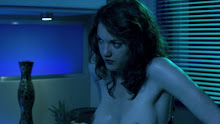
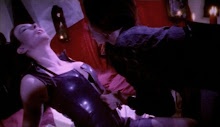





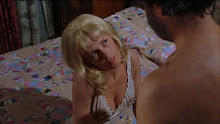
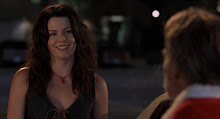








No comments:
Post a Comment